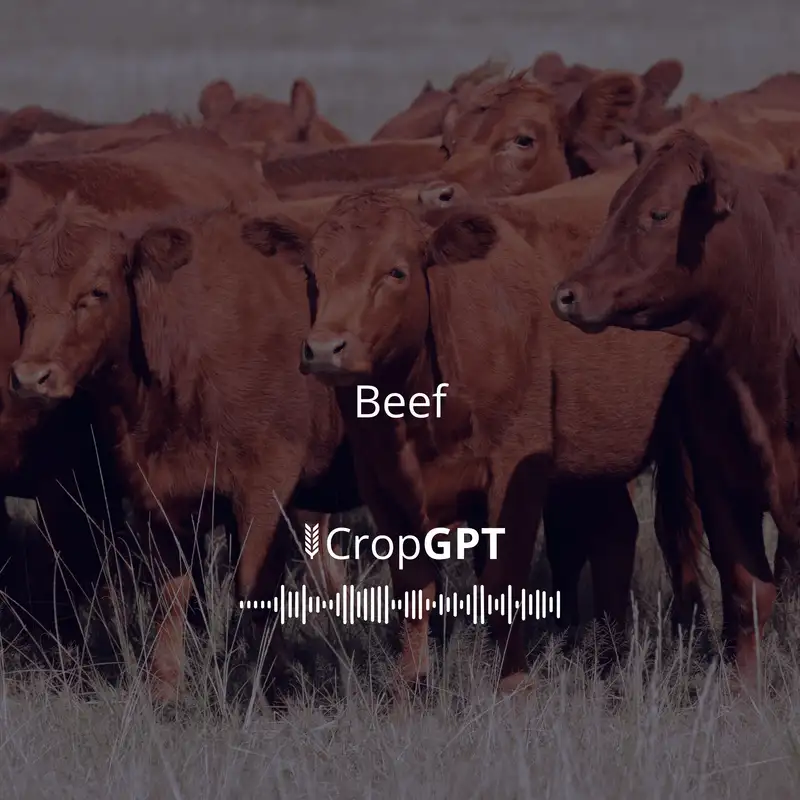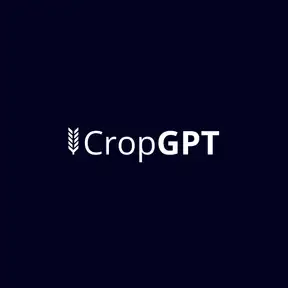Beef - UK and US Trade
Welcome back. You're here because you want to stay informed, efficiently and we get that. So today let's dive straight into something pretty significant. A new UK, US trade agreement, specifically what it means for beef imports.
Speaker 2:That's right. We've been looking at a report detailing this agreement and its potential impacts.
Speaker 1:And our mission, as always, is to get under the surface. What does this deal really mean for The UK beef market, for British farmers, and maybe even for you, the consumer?
Speaker 2:Yeah. And the report itself raises those immediate questions, doesn't it? Like, will The UK suddenly be flooded with hormone filled beef?
Speaker 1:Exactly. Or how much will this actually change things? Is it, you know, the end for UK beef farming as some might fear?
Speaker 2:Okay. Let's try and unpack that.
Speaker 1:So what's the core of this deal?
Speaker 2:Well, at its heart, it's a reciprocal tariff rate quota. Basically, it allows 13,000 tons of hormone free US beef into The UK market each year under lower tariffs.
Speaker 1:Hormone free and reciprocal.
Speaker 2:Yes. And this is important. It also gives UK Beef Producers, improved access to The US market, which is actually a first on this scale.
Speaker 1:Right. 13,000 tons. How much is that, really? Can you put that into perspective for us?
Speaker 2:Sure. It sounds like a big number, but it's roughly equivalent to about 4% of The UK's current annual beef production.
Speaker 1:Okay. 4%. And how does that compare to what was allowed before?
Speaker 2:Well, under the old WTO rules, the allowance for US beef was much smaller, only around a thousand tons. So, yes, it is a significant increase in potential US imports.
Speaker 1:But still a relatively small slice of the whole pie for now at
Speaker 2:least. Exactly. And that hormone free aspect you mentioned is really key.
Speaker 1:People are definitely concerned about that.
Speaker 2:Absolutely. The agreement explicitly states, mandates that any US beef coming in under this quota must be certified hormone free. It directly tackles that long standing worry.
Speaker 1:That's a critical point. And you said UK Farmers get better access to The US. How big a deal could that be?
Speaker 2:It's potentially quite significant. The report highlights this as a positive. It's the first time UK beef has gained this kind of preferential access to The US, which is, you know, the world's biggest beef market.
Speaker 1:So the government's probably quite keen on that side of it.
Speaker 2:Oh, definitely. They're framing it as unprecedented market access for UK Farmers, a real export opportunity.
Speaker 1:Okay. But this deal doesn't exist in a vacuum. Right? There have been other similar agreements post Brexit.
Speaker 2:Precisely. This fits a pattern. We've seen similar deals with Australia and New Zealand, which also increased the access for overseas beef, often within quota limits with lower tariffs.
Speaker 1:So this is part of a broader shift in UK trade policy regarding agriculture.
Speaker 2:You could certainly say that it shows a direction of travel.
Speaker 1:Okay. So we have the government view opportunity, maintaining standards. What about the warmers themselves? What are groups like the NFU saying?
Speaker 2:Well, their reaction is considerably more cautious. The NFU and other farming bodies have voiced real concerns.
Speaker 1:About what specifically?
Speaker 2:Primarily, the risk of being under cut by cheaper US imports. So especially when you add this to the impact of those other deals, the cumulative pressure.
Speaker 1:Right. The combined effect.
Speaker 2:Exactly. And they're very focused on maintaining The UK's high standards, food safety, animal welfare, environmental rules, there are still underlying worries about things like hormone use in general US production or antimicrobial washes even though this specific beef has to be hormone free.
Speaker 1:So even with that guarantee, the underlying anxieties remain?
Speaker 2:It seems so. They've given a sort of cautious welcome to the hormone free rule and The US market access.
Speaker 1:Mhmm.
Speaker 2:But they're still worried that UK Farmers might end up bearing the brunt facing competition from imports produced potentially to different standards overall, even if not on hormones in this case.
Speaker 1:I see. Let's talk about the product itself then. The report mentions key differences in production. US versus UK beef. How did they differ?
Speaker 2:Yeah. This is interesting. The main difference is feed. US beef production is largely based on grain feeding, often in very large feedlot systems.
Speaker 1:Whereas in The UK?
Speaker 2:In The UK, it's much more common to have grass fed systems or mixed systems where cattle graze pasture for a good chunk of their lives. It's just a different model.
Speaker 1:Could that mean they end up in different parts of the supermarket, so to speak? Different market segments?
Speaker 2:That seems highly likely. The report suggests exactly that. US beef being potentially cheaper to produce because of the grain and the sheer scale.
Speaker 1:Might end up more in processed foods, burgers, mince, catering?
Speaker 2:Probably. While UK beef, especially if marketed as grass fed or highlighting welfare standards, could hold on to the more premium end of the market.
Speaker 1:But there's still that price difference. The report says The US has a clear cost advantage.
Speaker 2:On a commodity basis, yes. Absolutely. And that puts pressure on UK Farmers. They either need to cut costs somehow or really double down on differentiating their product quality welfare environment.
Speaker 1:And the NFU thinks competing purely on cost is tough.
Speaker 2:Their assessment is pretty blunt. Very few UK Producers have the scale to compete head to head with the large US operations just on price alone.
Speaker 1:Put some numbers on that scale difference. The report had some striking comparisons, didn't it?
Speaker 2:It really does. Just look at total cattle numbers. The US has around what 86,700,000 head, The UK about 9,400,000.
Speaker 1:Wow. That's nearly 10 times the difference.
Speaker 2:It is. And look at exports, carcass weights. The US figures are significantly higher across the board. Total beef production. US around 13,000,000 tons a year.
Speaker 2:UK, less than 1,000,000.
Speaker 1:Huge difference. Mhmm. And the price farmers get.
Speaker 2:That's also telling. The farm gate price in The US is consistently lower, even accounting for different units dollars per hundredweight versus pence per kilo. The report makes it clear The US price translates to significantly less per kilogram for the farmer. It just highlights those structural cost advantages.
Speaker 1:So given that advantage and this new deal opening the door wider, what's the expected impact on The UK industry, both short and long term?
Speaker 2:Well, looking at import volumes, that initial 13,000 tons, as we said, is a small percentage of total UK imports right now. But
Speaker 1:It's foot in the door.
Speaker 2:Exactly. And the report notes US Officials are pretty optimistic about growing those exports to UK over time, so it's a starting point.
Speaker 1:And what about prices here?
Speaker 2:The expectation is definitely for downward pressure. More competition, especially from potentially lower cost imports, is likely to squeeze UK farm gate prices. The AHTB, the levy board, points out that even small increases in imports can ripple through the domestic market.
Speaker 1:Okay. That's the more immediate picture. What about further down the line?
Speaker 2:Longer term projections. They suggest a gradual shrinking of The UK's market share for its own beef, continued pressure on prices, and this increasing need for UK Producers to either become super cost competitive, which is hard.
Speaker 1:Or find those premium niches we talked about.
Speaker 2:Precisely. There's a real possibility according to the report that imported beef takes a bigger slice of the lower cost market retail basics, food service, while UK beef occupies a smaller, maybe more premium space.
Speaker 1:Is there a figure on how much imported beef could grow?
Speaker 2:The report mentions projections suggesting imports could exceed 30% of all beef consumed in The UK by 02/1930 if these trends continue.
Speaker 1:30%. That's quite a shift. Why does The US have this competitive edge? What are the core reasons?
Speaker 2:It boils down to a few key structural advantages. First, sheer economies of scale. Think massive feedlots, huge ranches. They manage far more cattle per person, driving down the cost per animal compared to smaller UK farms.
Speaker 1:Which are often more labor intensive.
Speaker 2:Right. Second, feed and input costs. The US has abundant, relatively cheap grain. Grain finishing fattens cattle faster, and in many areas, less need for expensive winter housing. Things like that add up.
Speaker 1:Okay. Scale, feed costs. Yeah. What else?
Speaker 2:Regulatory differences play a part too. Now this deal specifies hormone free, but historically, things like growth hormones, certain feed additives, boosted US productivity, and cut costs. Even beyond that, things like environmental or welfare regs for feedlots might be less stringent in some cases than UK standards, again affecting costs.
Speaker 1:So UK Farmers have higher standards, but that comes at a price.
Speaker 2:Essentially, yes. Higher welfare and environmental standards often mean higher production costs. And finally, there's labor and land productivity. Greater mechanization in The US, cheaper and more available land for raising cattle initially. It all contributes.
Speaker 2:AHDB studies have shown US farms managing significantly more cows per worker.
Speaker 1:Okay. So summing it all up then, the short term outlook versus the longer view.
Speaker 2:In the short term, this initial quota increase is probably The report suggests The UK beef sector remains viable, and prices might even hold up near term if UK supply stays relatively tight.
Speaker 1:But looking further out.
Speaker 2:The challenges look more significant. The potential for farm consolidation, some producers perhaps exiting the sector, a decline in The UK's overall self sufficiency in beef, which, you know, raises bigger questions about food security if we rely more on imports.
Speaker 1:Are there projections on farm numbers or output?
Speaker 2:The AHDB has run scenarios. Their, more pessimistic ones project noticeable drops in UK cattle numbers and total beef output by 02/1930 if current trends potentially accelerated by deals like this play out.
Speaker 1:Certainly gives us a lot to think about. As we wrap up this deep dive, what's a final thought you'd leave with our listeners?
Speaker 2:Just perhaps to consider, thinking about all these shifts, what does the future of our food system, our food choices look like here in The UK? And how much weight will factors like, you know, where your beef comes from, how it was produced, and of course the price tag.
Speaker 1:Yeah.
Speaker 2:How much will those things matter in your own decisions?
Speaker 1:That's a really important question. So just quickly recap, this new UK US trade deal means more American beef entering The UK, though initially it must be hormone free.
Speaker 2:Which presents challenges for UK Farmers facing tougher price competition and the structural advantages of The US system.
Speaker 1:Right. While there are potential export gains for The UK side, and maybe more consumer choice, it's clear there are some powerful forces at play reshaping the market.
Speaker 2:Definitely food for thought.
Speaker 1:Indeed. We hope this deep dive helps you understand those complexities. Maybe next time you're buying beef, you'll look at the label a bit differently, or think about the journey it took.
Speaker 2:Because understanding these underlying dynamics is key to being truly informed.
Speaker 1:Thanks for taking the deep dive with us.

